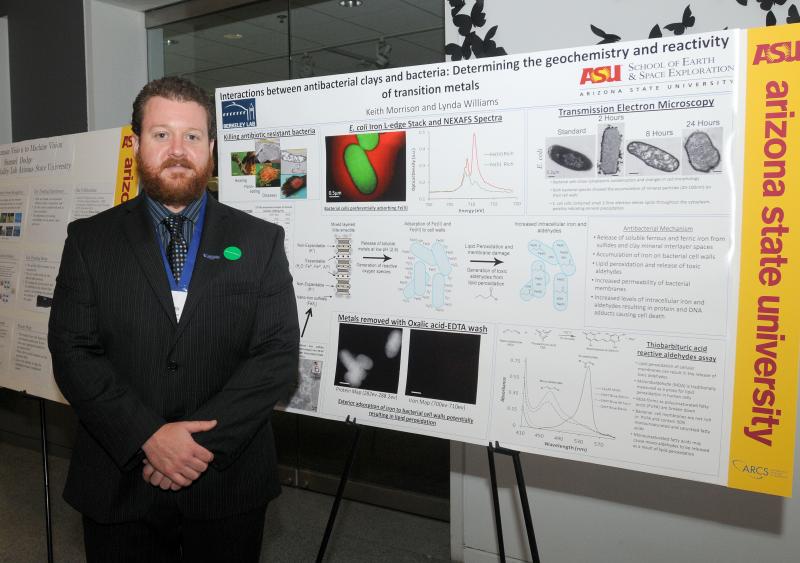ARCS Phoenix Scholar, Keith Morrison, from the Arizona State University School of Earth and Space Exploration published a paper in the November 2013 journal of Environmental Geochemistry and Health on antibacterial clay research. The article was entitled “Mineralogical Variables that Control the Antibacterial Effectiveness of a Natural Clay Deposit.” Keith is concerned with the health risks due to the rise of antibiotic-resistant bacterial strains. He is researching finding alternatives to conventional antimicrobials. His paper focused on an antibacterial clay deposit near Crater Lake, Oregon. 
One of his goals was to identify “new clay deposits which exhibit consistent, antibacterial capacities. Such natural deposits may provide cost-effective topical antibacterial treatments or lead to discover of new antibacterial mechanisms that may ultimately benefit the health care industry and developing nations by providing a low cost topical antibacterial agent that arises from hydrothermal alteration of volcanic rock.”
His research findings supported his goal. He found that “clays containing minerals that buffer solutions to healthy skin pH, Eh conditions and produce soluble Fe2+ could be viable treatment options for chronic (non-healing) wounds infected with antibiotic-resistant bacteria.” ARCS Phoenix is proud to congratulate Keith on his publication.
Keith's current research focuses on establishing the geochemical variables that make certain minerals antibacterial. He has begun investigating the role of reactive oxygen species, metal solubility and protein oxidation to identify the natural antibacterial mechanism exhibited by these clays.
